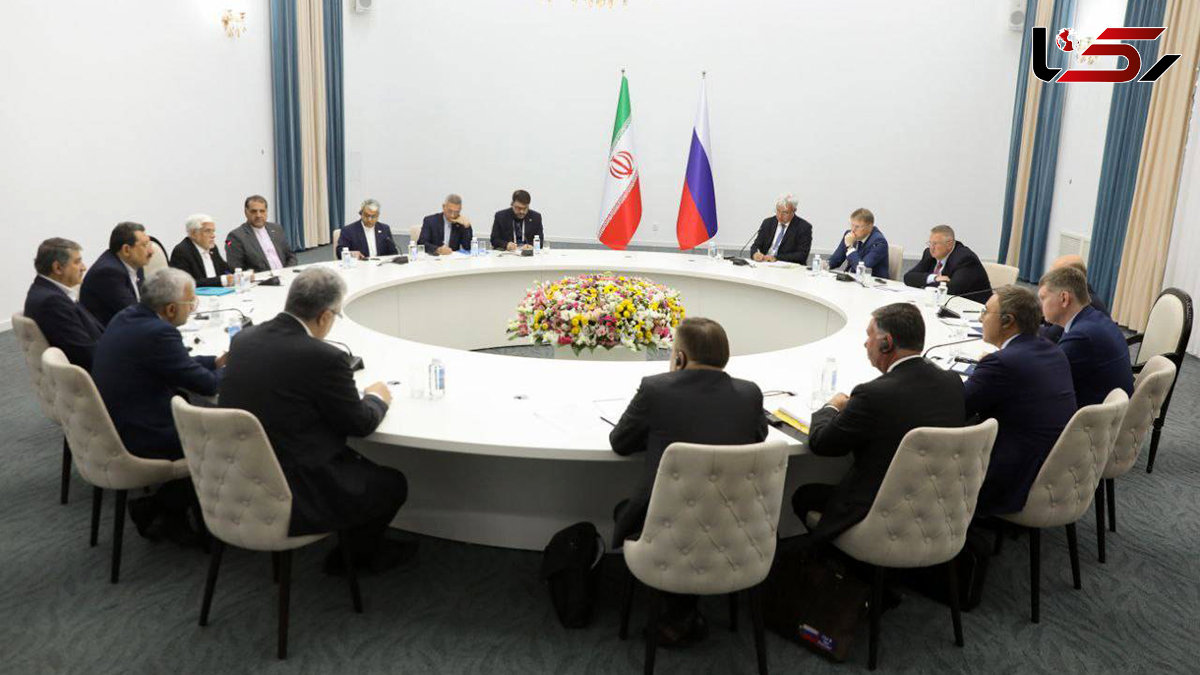“First Vice President Meets Russian Prime Minister”
“West Politicized Iran’s Nuclear Program”
Rokna Political Desk: The First Vice President, in a meeting with the Russian Prime Minister, stated that the strategy of the Islamic Republic of Iran is to prevent interference from foreign countries and forces, particularly in the region’s geopolitics. He emphasized that the regional situation necessitates increased dialogue between Iran and Russia, noting that the diplomatic consultations between the two countries during the imposed 12-day war against Iran were highly significant.

Mohammad Reza Aref met this morning, local time, with Mikhail Mishustin, Russian Prime Minister, on the sidelines of the Eurasian Economic Union Prime Ministers’ meeting. He highlighted the importance of strengthening bilateral relations on regional issues and emphasized that the Islamic Republic of Iran is fully prepared to enhance bilateral, multilateral, and regional cooperation with Russia. Referring to Iran’s nuclear negotiations, he stated: “Iran has always pursued dialogue and confidence-building regarding its peaceful nuclear activities, but Western countries from the outset turned Iran’s nuclear issue into a political project.”
Addressing the positions of certain European countries regarding the snapback mechanism, he added: “From a legal standpoint, we believe that the three European countries have no right to interfere in this matter, and their proposals effectively recognize the non-principled positions of the United States in the nuclear negotiations.”
Aref further stressed that the Islamic Republic of Iran has never sought non-peaceful use of technology, particularly nuclear technology. He condemned the attack carried out by the Zionist regime in cooperation with the United States during indirect negotiations with Iran, which resulted in the martyrdom of prominent professors, military commanders, and Iranian citizens, noting that there was no logical or legally admissible reason for the attack, which occurred while negotiations, according to the U.S., were progressing toward confidence-building.
The First Vice President condemned the crimes of the Zionist regime in Gaza, stating: “The Zionist regime continues to demonstrate inhumane and oppressive behavior to the world, aiming to consolidate its aggression in Gaza and deny the residents their right to life. Cooperation must be enhanced to prevent these crimes.”
Aref emphasized that the Islamic Republic of Iran, like Russia, opposes U.S. unilateralism globally and that a strategy based on multilateralism, as well as regional security and stability, should be pursued with the help of regional countries. Resolving regional issues does not require the involvement of external powers, as the countries themselves are capable of solving their problems.
He also referred to developments in the Caucasus, noting: “We welcome any understanding and cooperation to reduce tensions and foster friendly and sincere relations among regional and neighboring countries. However, Iran’s strategy is to prevent interference by foreign countries and forces, particularly in the region’s geopolitics, as regional matters do not require external forces. All countries in the Caucasus and Central Asia can live together in peace, stability, and security.”
The First Vice President stated that the Islamic Republic of Iran believes in the serious and continuous development of cooperation in all fields with the friendly and brotherly country of Russia. He added: “The cooperation potential between Tehran and Moscow exceeds current capacities, and certain bureaucratic issues have slowed the process. Communications should follow a comprehensive strategic program, particularly in the fields of energy, tourism, transportation, railways, and corridors.”
He emphasized the need for joint commissions between the two countries to be more active than before and for scientific and technological achievements of Iran and Russia to be shared.
Russian Prime Minister Mikhail Mishustin, in turn, highlighted that Iran-Russia trade and economic cooperation has significantly increased over the past years. He stated: “The implementation of the Free Trade Agreement between Iran and the Eurasian Union has had a significant impact on the expansion of Iran’s relations with regional countries in various fields, and the establishment of the North-South Corridor is essential for deepening these relations.”
He also emphasized, referring to continuous and constructive diplomatic contacts between the leaders of the two countries, the necessity of expanding cooperation in scientific and technological fields, tourism, and the implementation of bilateral agreements and understandings.
Referring to developments in the Caucasus region, the Russian Prime Minister stressed: “All countries in the region should maintain relations based on the principle of good neighborliness, and together we can shape the future of the region.”
Send Comments